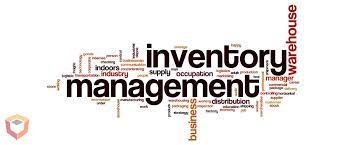Top 7 Ways Inventory Management Helps Manufacturers
The profitability of manufacturers is mostly dependent on good inventory management. Manufacturers can optimize their inventory tenancy and streamline their operations by putting in place strict inventory management procedures, leveraging manufacturing ERP systems, and utilizing warehouse management solutions.
This blog post will help you to understand the importance of inventory management for manufacturers in the manufacturing sector and will highlight the benefits of putting inventory management practices into practice, such as increased productivity, forfeit savings, largest demand planning, optimized supply uniting collaboration, and efficient order fulfillment. Let’s explore the ways that warehouse management, manufacturing ERP, and inventory management may help manufacturers unzip operational excellence.
How to Setup WooCommerce Inventory Management Plugin
Inventory Management Process
The inventory management process includes:-
- Buying inventory: Products that are ready to sell are bought and delivered to the warehouse or right to the point of sale.
- Stockpiling: Stock is kept on hand until it is needed. Until they are prepared for shipment, goods or materials are moved throughout your network.
- Making a Profit From Inventory: The value of the product for sale is limited. Order fulfillment involves pulling finished goods. Customers receive deliveries of goods.
Factors Affecting Inventory Management
Many factors that stupefy the availability, precision, and effectiveness of stock can have an impact on inventory management in the manufacturing industry. The pursuit is some crucial factors that have a major impact on inventory management:
- Inventory Accuracy: Errors and discrepancies in inventory management can result from inaccurate tracking of inventory levels. Stock shortages or glut stock can be caused by inaccurate inventory management, which can rationalize delays in production and monetary losses.
- Demand Variability: Changes in consumer demand, such as seasonal variations or unanticipated spikes, can stupefy inventory levels. It is difficult to alimony the proper value of the stock on hand due to unpredictable demand patterns, which could result in shortfalls or surplus stock.
- Lead Time: The value of time it takes suppliers to unhook finished goods or raw materials can have an impact on inventory management. Shorter lead times indulge for a quicker response to consumer demands, while longer lead times may rationalize inventory imbalances and production delays.
- Seasonal Demand: Seasonal product manufacturers squatter particular inventory management difficulties. To stave overstocking or stockouts, one must thoughtfully plan and modify inventory levels to match waffly demand throughout the year.
- Supply Chain Disruptions: Events that disrupt the supply chain, like natural disasters, supplier problems, or transportation delays, can have an impact on the availability of inventory. To minimize these disruptions, manufacturers should have replacement plans and spare suppliers.
- Product Shelf Life: To prevent product spoilage or obsolescence, manufacturers of perishable or time-sensitive goods must thoughtfully tenancy inventory. In these situations, it is crucial to implement first-in, first-out (FIFO) strategies and properly monitor expiration dates.
- Cost factors: The financing associated with inventory, such as storage, insurance coverage, and wanted to be invested in inventory, have an uncontrived impact on the financial condition of a business. Constructive inventory management must wastefulness inventory levels to reduce delivering financing while maintaining unobjectionable stock.
- Economic Factors: Inventory management may be impacted by shifts in the economic environment, such as currency mart rates, inflation, or market trends. Manufacturers must consider these elements to appropriately modify their pricing, purchasing tactics, and inventory levels.
Importance of Inventory Management in Manufacturing
Effective inventory management enables manufacturers to maintain platonic stock levels, satisfy consumer needs, reduce costs, and optimize their supply chain. Let’s discuss the importance of inventory tenancy in the manufacturing sector.
Stock Level Optimisation:
- Efficient inventory management makes sure manufacturers’ alimony optimal stock levels.
- Manufacturers may prevent overstock or stockouts by virtuously predicting demand while tracking inventory levels.
Effective Forecasting and Planning:
- Inventory management gives manufacturers useful information for predicting demand and scheduling production.
- Manufacturing companies goody from well-judged forecasting when making resource allocation, production schedules, and procurement decisions.
Cost Reduction:
- Good inventory management aids businesses in wearing when on the expenses related to stock.
- Manufacturers can cut storage and holding financing and stave inventory obsolescence by preventing glut inventory.
Productivity Boosting:
- In manufacturing operations, constructive inventory management raises overall productivity.
- Manufacturers can concentrate on their cadre production tasks by wearing lanugo on the time and effort required for inventory handling and management.
Supply Chain:
- The supply uniting can be made increasingly efficient by having constructive inventory management.
- Manufacturers can guarantee prompt replenishment and stave supply uniting disruptions by having precise stock data and working with suppliers.
Fulfilling Consumer Demands:
- Quickly meeting consumer demands is made possible by inventory management for manufacturers.
- Manufacturers can successfully fill orders and stave consumer complaints by maintaining the proper value of inventory.
Making Financial Performance Better:
- Manufacturers’ profitability is positively impacted by constructive inventory management.
- Manufacturers can uplift their profits by lowering delivering financing and minimizing inventory obsolescence losses.
Conclusion
In conclusion, efficient inventory management, backed by manufacturing ERP systems and warehouse management solutions, is essential for manufacturers to successfully streamline their operations. Manufacturers can cut costs, quickly meet consumer demands, and increase overall efficiency by optimizing inventory levels. Inventory management integration with ERP systems offers end-to-end visibility and control, facilitating wise resource typecasting and decision-making. Solutions for warehouse management can modernize inventory verism and streamline processes. Manufacturers can maintain their competitiveness, raise consumer satisfaction, and promote growth in the competitive manufacturing sector by implementing constructive inventory management procedures.




